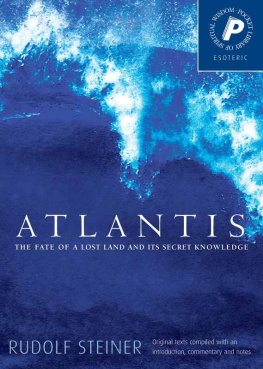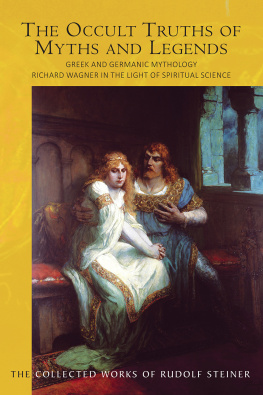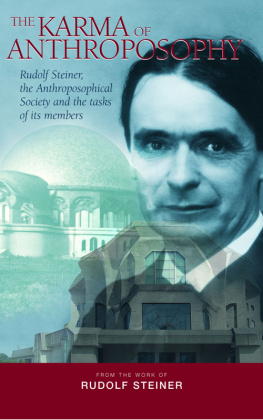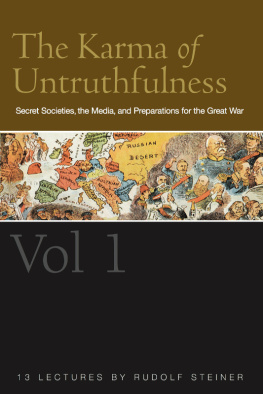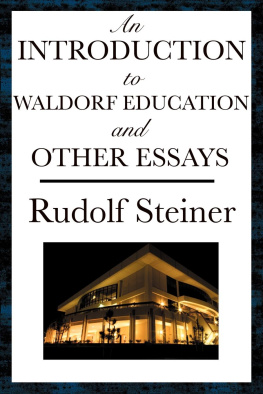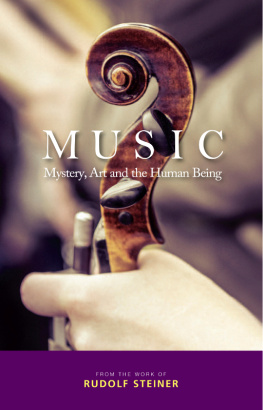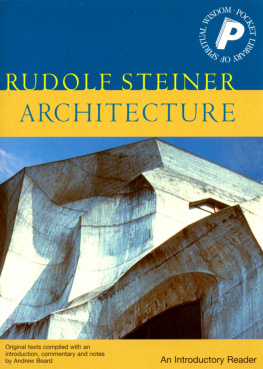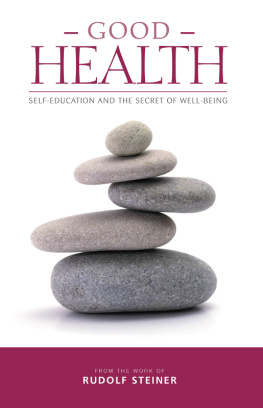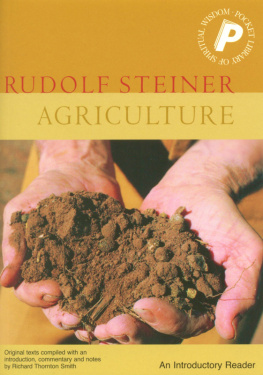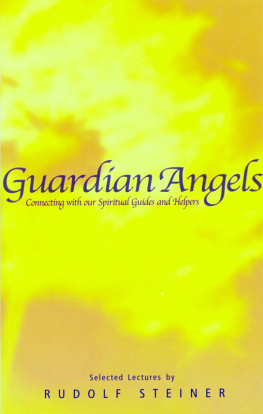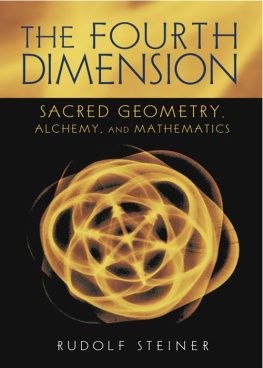
RUDOLF STEINER (1861-1925) called his spiritual philosophy anthroposophy, meaning wisdom of the human being. As a highly developed seer, he based his work on direct knowledge and perception of spiritual dimensions. He initiated a modern and universal science of spirit, accessible to anyone willing to exercise clear and unprejudiced thinking.
From his spiritual investigations Steiner provided suggestions for the renewal of many activities, including education (both general and special), agriculture, medicine, economics, architecture, science, philosophy, religion and the arts. Today there are thousands of schools, clinics, farms and other organizations involved in practical work based on his principles. His many published works feature his research into the spiritual nature of the human being, the evolution of the world and humanity, and methods of personal development. Steiner wrote some 30 books and delivered over 6000 lectures across Europe. In 1924 he founded the General Anthroposophical Society, which today has branches throughout the world.
Also available:
(Esoteric)
Alchemy
Christian Rozenkreutz
The Druids
The Goddess
The Holy Grail
(Practical Applications)
Agriculture
Architecture
Art
Education
Eurythmy
Medicine
Religion
Science
Social and Political Science
(Festivals)
Christmas
Easter
Michaelmas
St Johns
Whitsun
RUDOLF STEINER
ATLANTIS
The Fate of a Lost Land and
its Secret Knowledge
Compiled with an introduction,
commentary and notes by
Andrew Welburn
Sophia Books
Sophia Books
An imprint of Rudolf Steiner Press
Hillside House, The Square
Forest Row, East Sussex
RH18 5ES
www.rudolfsteinerpress.com
Published by Rudolf Steiner Press 2012
For earlier English publications of extracted material see Sources
The material by Rudolf Steiner was originally published in German
in various volumes of the GA (Rudolf Steiner Gesamtausgabe or
Collected Works) by Rudolf Steiner Verlag, Dornach. This
authorized edition is published by permission of the Rudolf Steiner
Nachlassverwaltung, Dornach (for further information see Note Regarding Rudolf Steiners Lectures)
All translations revised by Christian von Arnim
This selection and translation Rudolf Steiner Press 2001
All rights reserved. No part of this publication may be
reproduced, stored in a retrieval system, or transmitted, in any
form or by any means, electronic, mechanical, photocopying
or otherwise, without the prior permission of the publishers.
A catalogue record for this book is available from the British Library
ISBN 978 1 85584 276 2
Cover by Andrew Morgan
Typeset by DP Photosetting, Aylesbury, Bucks.
Contents
Introduction: Atlantis and Prehistory-A Modern
Perspective by Andrew J. Welburn
Introduction: Atlantis and Prehistory-A Modern Perspective
by Andrew J. Welburn
What do we really know about human prehistory? What were our remoter ancestors like, the brutish cavemen of popular mythology or, as seems increasingly to be suggested, human but strangely different from ourselves? More and more such questions are being asked. Despite the efforts of generations of fossil-hunters and archaeologists, leading experts on the subject are increasingly driven to admit that much which is essential to understanding the origins and early development of humanity remains an enigma.
Darwins hope that the emergence of human intelligence could be explained from the gradual animal evolution of uprightness in apes-freeing the hands and arms, leading to tool-making, leading to co-operation and socialization, in turn requiring greater brain-power, and so producing higher intelligencelong dominated the scientific debate about prehistory. Only from the late 1960s did the evidence of new discoveries finally force scientists themselves to question it.
The turn-around of cart and horse, so to speak, in the understanding of evolution has once again brought the issue of the human, rather than animal, to the forefront of our thinking. Yet paradoxically, the new trend leaves us with greater chasms to be spanned. It leaves the hominids prior to those breakthrough leaps, whose remains are now being uncovered in greater numbers, looking markedly less human. Sometimes we have the strange phenomenon of closely related hominid types, but the one robust and animal-like, the other gracile and human in tendency. And how are we to explain the extraordinary rate of change shown in human evolution? It is hard to avoid the impression that something is still missing from the picturethat we need a change of perspective still more radical, a deeper insight into our humanity, if we are really to understand what is going on.
Of course it is still a huge leap from these questions to the perspective of Rudolf Steinerperhaps of the order of an evolutionary breakthrough in our thinking itself! But it is certainly true that, on the basis of his spiritual conception of humanity (anthroposophy, wisdom of man) Rudolf Steiner had already thought through many of the issues now facing research into these fascinating domains. If his Atlanteans still seem far removed from the speculations of the fossil-scientists of today, it must at least be admitted that the appearance, relatively far back, of such things as language, relatively complete and elaborate, rather than as the result of indeterminately long evolutionary chipping, makes the existence of human ways of life in those ancient times something with which we now have to come to terms. And such human features must nevertheless have co-existed with the absence of many of the aspects of human cultural, and even physical evolution, which we now take for granted. The situation Steiner describes of a humanity that had highly developed memory, and dreamlike spiritual perception of their living environment, but nothing of what we know as rationality or self-awareness, makes sense when we abandon the old notion of all human faculties emerging slowly together. Quite different states of development, quite different kinds of consciousness must have existed in the ages of human evolution. Our perspective on ourselves must change accordingly. Knowledge of the Atlantean stage of human development was important to Steiner for precisely this reason, as a part of our understanding of human evolution overall. We need to understand it so as to know how we became human, the nature of our consciousness and this is crucially important because it is only by seeing how we got here that we can also appreciate our potential for further development. Other modes of human life have existed, and in the future will again be possible. It is this evolutionary perspective which is crucial to Steiners anthroposophical approach. And the way evolution turns out to have been driven by such factors as language-development, socialization, etc. falls into place for him as part of an idea of evolution that from the very beginning included such spiritual aspects, helping to determine the direction of organic evolution rather than emerging piecemeal from it. We shall see how they figure in his account of the way that spiritual evolution has played into and all along been part of physical evolution, at the human stage bringing about the implanting of memory, language and thought. Despite the huge gulfs that still remain, the convergences of approach between spiritual and scientific are also striking, and in many ways Steiner seems to furnish exactly that other half of the equation which was felt to be implied, however enigmatically, by the missing dimension in ordinary scientific thought.

